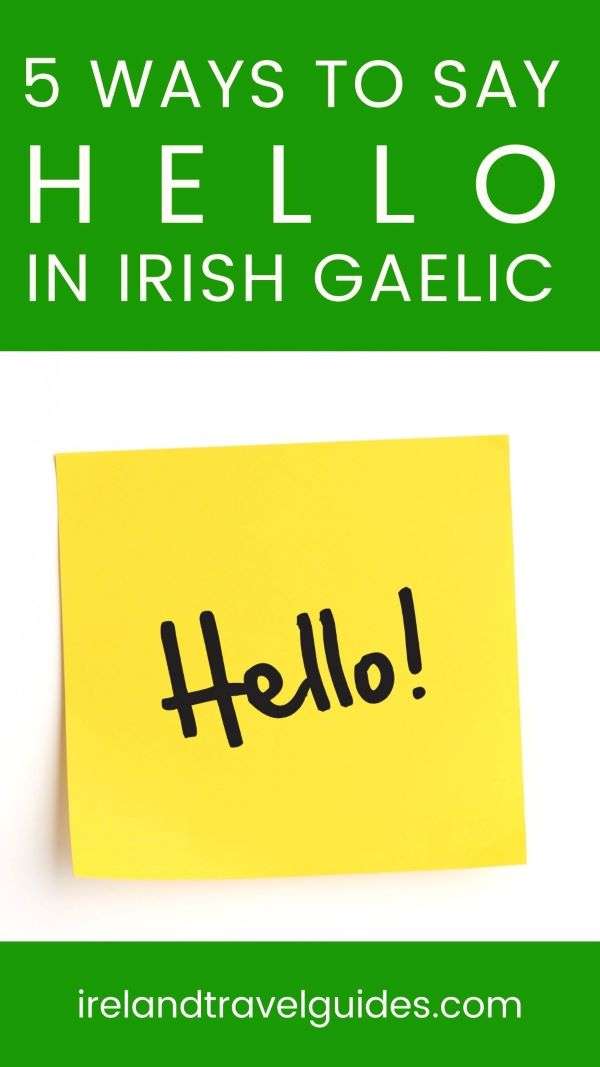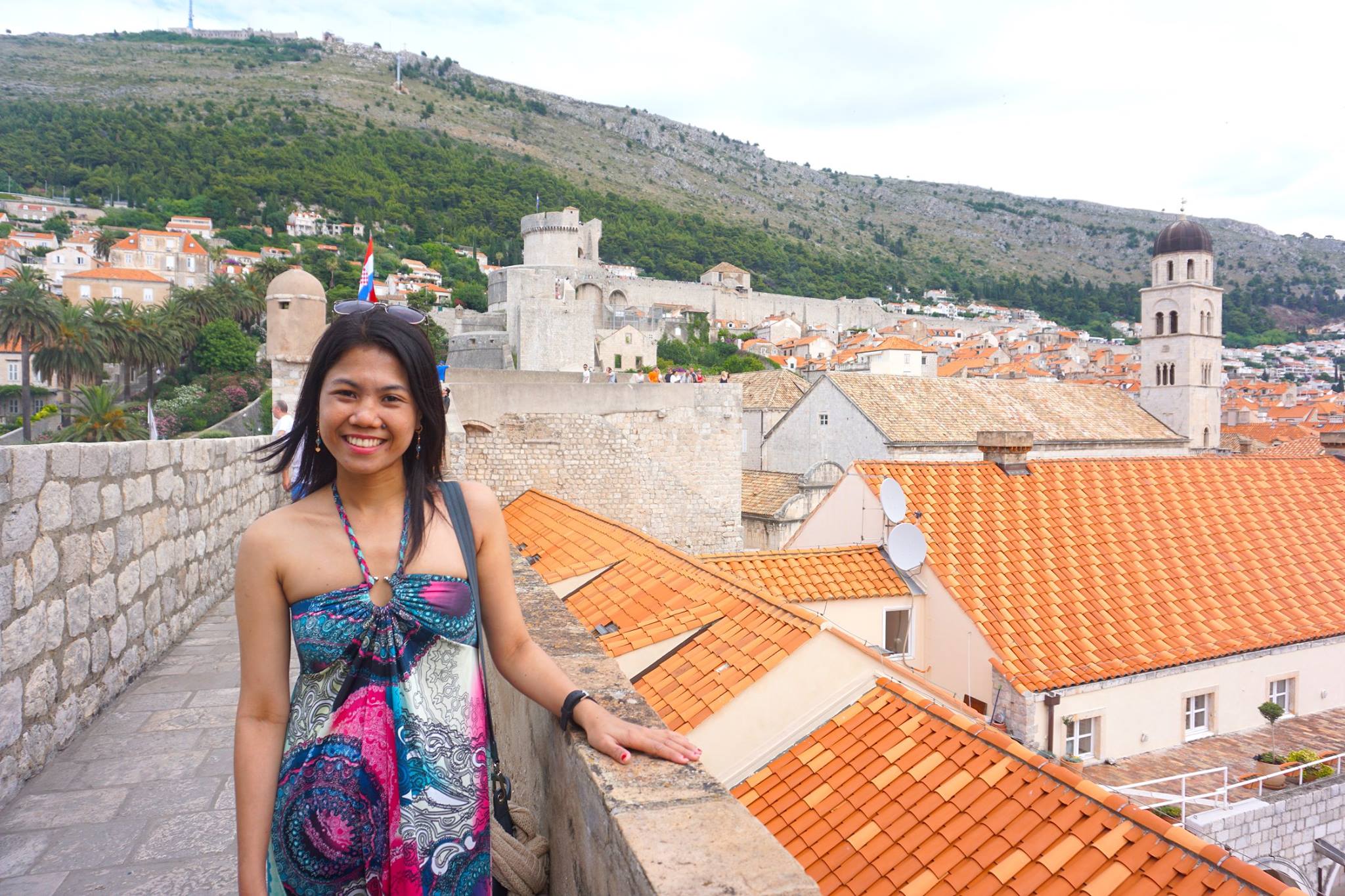Do you want to learn how to say hello in Irish Gaelic in ten minutes?
The majority of people in Ireland understand English that you can easily greet them by just saying “hello.”
However, if you want to charm the locals, this easy guide on how to say “Hello” in Irish Gaelic will surely come in handy.
Things you'll find in this article
5 Ways to Say Hello In Irish Gaelic

1. Dia duit
Pronounced as dee-ah gwit, this is the Irish Gaelic way to greet people in any setting or situation.
This phrase technically means “God be with you,” but it can also imply “God be with you.” This is the standard greeting among Irish speakers.
Regardless of your religion or the religious beliefs of the person you’re welcoming, this phrase is a traditional greeting. It is, nonetheless, viewed as a Christian blessing.
2. Dia daoibh
Pronounced as dee-ah deev, this is what you say if you’re greeting several people at once in Irish Gaelic. This phrase means “God to you all.”
Note that even though most people in Ireland understand English, Irish people rarely say “hello” (spelled haló or heileo in Gaelic) to one another, especially when answering the phone.
3. Dia is Muire duit
Pronounced as dee-ah iss Mwir-eh gwit, this is what you say as a response to dia duit.
Rather than merely replying with an Irish Gaelic “hello,” dia is Muire duit is a more appropriate and usual response in Irish Gaelic.
“God and Mary to you” is the literal meaning of this phrase.
Even if there were a bunch of individuals there, you wouldn’t need a plural version of this sentence because your reaction would be limited to the person who spoke.
4. Móra na maidine duit
This is what you say if you don’t want to say “Hello” with religious connotations. Pronounced as MOR-uh nuMA-jin-uh ditch, this translates to “good morning” in Irish Gaelic, which is another way to say “hello”.
You might not feel comfortable greeting someone with what is effectively a Catholic blessing if you are not a Christian, so take note of this phrase.
Mór, the name of a Celtic deity, was the origin of the word mora.
In recent times, however, this statement has lost much of its religious and spiritual meaning.
Móra na maidine duit is also another traditional Irish morning greeting that is thought to be the source of the infamous “top o’ the mornin'” stereotype.
The “Stage Oirish” greeting most likely came from this greeting. Mór (of which “móra” is a variant) can imply “large” or “great.”
This greeting could have been misinterpreted as “the better/greater half of the morning to you.” It’s not difficult to picture it rising to the top from there.
Móra, on the other hand, just means “good” in this context.
If you want to say “hello” to several people in Irish Gaelic, what you say instead is Móra na maidine daoibh (MOR-uh muh MA-jin-uh DEE-uv).
5. Aon scéal
This expression is pronounced as ay-uhn shkail, and commonly used with people you are familiar with like family and friends.
The literal translation of this phrase is “any story?” and is similar to saying “what’s up?” in English. Therefore, it’s something you can say to your age group of friends and acquaintances.
Even if you don’t know them well, you can use it with youngsters or people much younger than you. This is a very casual and colloquial expression.
However, even if Irish speakers aren’t as formal as many European countries, Aon scéal should be avoided in serious or professional situations.

Hi, I’m Christine – a full-time traveler and career woman. Although I’m from the Philippines, my location independent career took me to over 60 countries for the past 12 years. I also lived in 4 continents – from the Caribbean, South East Asia, Africa and now in Europe. But despite living in several countries, my love for Ireland remains the same. A country that had been a part of my life since I was 14 because of my love for Irish music and bands. Ireland Travel Guides was born because of this passion and hopefully, in some little ways, this website will be able to help you on your next trip to Ireland.